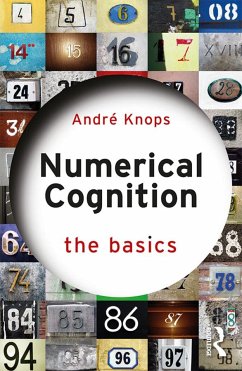Numerical Cognition: The Basics provides an understanding of the neural and cognitive mechanisms that enable us to perceive, process, and memorize numerical information.
Starting from basic numerical competencies that humans share with other species, the book explores the mental coding of numbers and their neural representation. It explains the strategies of mental calculation, their pitfalls and their development, as well as the developmental steps children make while learning about numbers. The book gradually builds our understanding of the underlying mental processes of numeracy and concludes with an insightful examination of the diagnosis, etiology and treatment of dyscalculia.
Written in an accessible manner, the book summarizes and critically evaluates the major psychological explanations for various empirical phenomena in numerical cognition. Containing a wealth of student-friendly features including end of chapter summaries, informative figures, further reading lists, and links to relevant websites, Numerical Cognition: The Basics is an essential starting point for anybody new to the field.
Starting from basic numerical competencies that humans share with other species, the book explores the mental coding of numbers and their neural representation. It explains the strategies of mental calculation, their pitfalls and their development, as well as the developmental steps children make while learning about numbers. The book gradually builds our understanding of the underlying mental processes of numeracy and concludes with an insightful examination of the diagnosis, etiology and treatment of dyscalculia.
Written in an accessible manner, the book summarizes and critically evaluates the major psychological explanations for various empirical phenomena in numerical cognition. Containing a wealth of student-friendly features including end of chapter summaries, informative figures, further reading lists, and links to relevant websites, Numerical Cognition: The Basics is an essential starting point for anybody new to the field.









